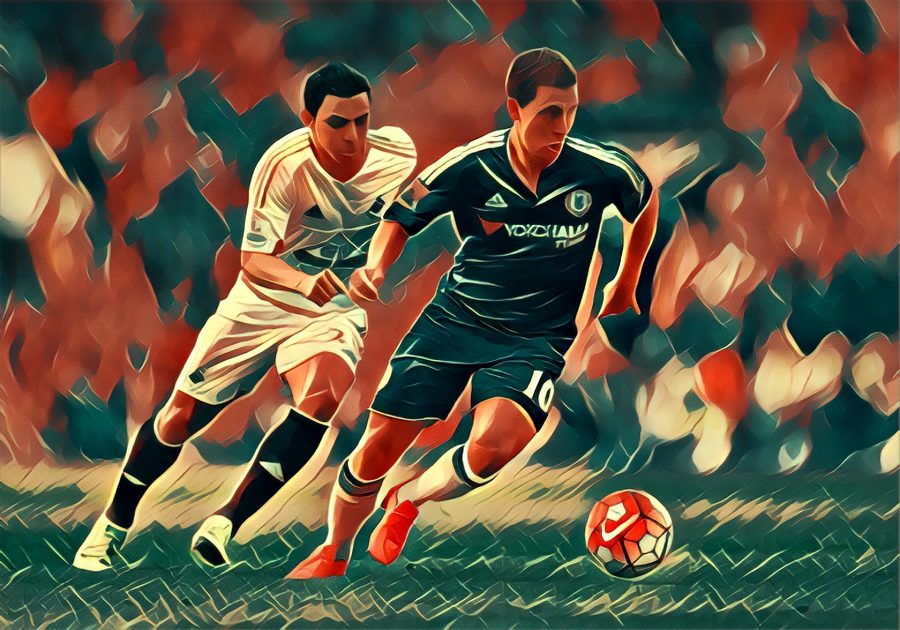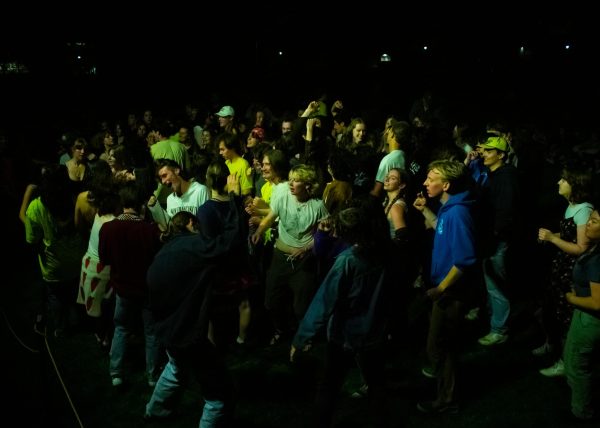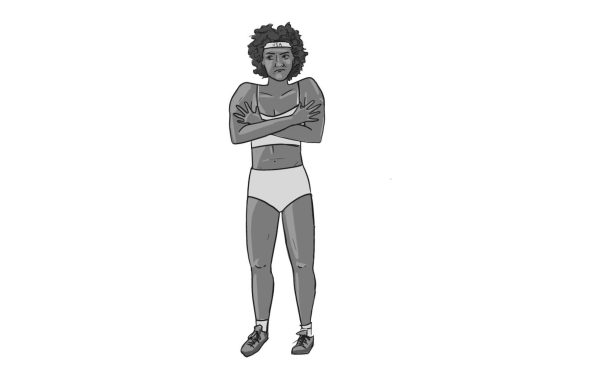ISIS, Soccer, and the French: Paris and Brussels through the Lens of Euro 2016
May 17, 2016
Last November, terrorist strikes killed 130 people across Paris, the most deadly attacks in France since World War II. Only four months later, the world once again looked on in shock as Brussels became victim to explosions at the international airport and a metro station.
Like many terrorist attacks, neither of these attacks (which were claimed by the terrorist group ISIS) followed their original plan; the Paris and Brussels attacks share something else in common. They were both originally planned for the same target: France’s 81,000-capacity national soccer stadium, the Stade de France.
As someone who follows soccer news in depth yet whose primary political news source is my Facebook newsfeed and my weekly New Yorker subscription, I often first hear about major world events through the soccer’s lens: a new Lionel Messi tax fraud case tuned me into something called the Panama Papers; Qatar’s successful 2022 World Cup bid shed light on new-age slavery in inhumane working conditions; and Ivory Coast’s civil war ceasefire in 2006 became newsworthy when soccer superstar Didier Drogba, after leading his team to qualify for their first ever World Cup, pleaded on national television for his fellow countrymen to stop the fighting.
Those of us watching the France host a friendly match versus Germany on November 13 heard two loud explosions in the second half (the game didn’t stop) only to later find out that they were suicide bombers who detonated their devices after being refused entrance to the stadium, which they had intended to target as part of a larger terrorist attack on the city. The suicide bombers that could have killed hundreds to thousands inside the stadium reduced their death count to only one (in addition to themselves).
Soccer has become such a globalized sport that people often use it it to draw parallels with what is happening in the rest of the world. Nowadays, this connection is as direct as ever with European soccer taking center stage to ISIS terrorism in Europe. In this instance, soccer is more than merely a lens through which to view these attacks; the relevance of this match and the upcoming European Championships provide the context (that I fear is unnoticed by the majority of Americans) necessary to understand these as intentional, specific attacks on Europe as a whole.
This summer, ten cities across France will host the biggest sporting event in Europe, the 2016 UEFA European Championship, which will see 24 European national teams battle to be crowned champion of Europe. It’s the second most important international soccer tournament (second only two the World Cup) and occurs only every four years. Zinedine Zidane, a French soccer legend, once called the Euros “more difficult to win than the World Cup”; he would know, he has won both tournaments within the span of two years. This is primarily because one faces a higher density of European teams, which are the best in the world and (like most other continents) enjoy it as their number one pastime. The Euros represent unity within Europe, and exude European excellence both through technique on the pitch and in their ability to comfortably and smoothly host a month-long major sporting event. It’s a giant Broadway show with France as the stage and Europe as the ensemble.
The Paris attacks (which also saw several shootings at restaurants, cafes, and a concert hall) saw three terrorists detonate their suicide vests only after being denied entrance the stadium. The two teams playing were France (hosts and favorites of Euro 2016) and Germany (2014 World Cup winners and top challengers). This was a preview of the final many expect to see next July, and, although it was a “friendly” it was a widely televised match with 75,000 in attendance (including French president François Hollande).
The Brussels attacks were originally planned for Euro 2016 in France this summer. However, the target ended up being the Brussels Airport and the metro station adjacent to the European Union headquarters. The fact that the EU headquarters were their second choice suggests that a) they were targeting Europe both physically and symbolically and b) this soccer tournament is a really big deal to Europeans.
This has all unfolded over the past six months not so much as foreshadowing but rather as a threat. The notion that the Brussels attacks were an audible, changing to something before the Euros is unnerving. If their targeting Paris and Brussels was symbolic of targeting all of Europe, opportunities for such attacks are only going to get much bigger this summer as millions travel to France and densely crowd into televised stadiums.
This threat is not lost on the tournament hosts, who are keen to do a thorough job on security. In April, France extended their State of Emergency (granting police extra power to search and detain civilians) for the third time since November, this time extending it until after the tournament this summer.
Despite the added fear, plans and excitement are unfolding for the Euros as if under normal conditions. Pundits and fans alike are already predicting winners, upsets, and top scorers; tickets are already selling out. It’s a tribute to the world’s love for the sport that it takes an immense amount to put it on hold; the Paris and Brussels attacks are not enough to stop them from hosting the tournament and showing the world what Europeans do best. After a 16-year trophy drought for the French national team, Les Bleus are very eager to win this summer on home soil. The looming threat of ISIS would only make that victory all the more satisfying.
Controversy and violence, as it turns out, has been no stranger to Les Bleus over recent years, something the 2006 Pink Panther film starring Steve Martin illustrated (or seemingly predicted) aptly when their trainer murdered their head coach during a match. Since then, Zidane ended his career by earning a red card for head-butting Italian defender Marco Materazzi shortly before losing a World Cup final; France shockingly didn’t make it out of the group stage in the 2010 World Cup in South Africa, highlighted by the star Nicolas Anelka’s profane rant about coach Raymond Domenech who had just sent him home; most recently, France’s best player, Karim Benzema, has already been banned from the squad after being implicated in a scandal involving the blackmail of a sex tape of Mathieu Valbuena (also on the French team).
Drama amongst Les Bleus has become somewhat of a staple on the international soccer scene. While some enjoy the show (it’s the most reliably funny French sitcom) and others despise it (it doesn’t mesh well with French pride), this type of drama is generally amongst the ugliest we can expect to see at any major soccer tournament.
Now, with the threat of an ISIS attack at this summer’s Euro 2016, many of us are left hoping that the worst violence of the tournament occurs on the field (perhaps in the form of Antoinne Griezmann and Dimitri Payet beating each other with baguettes over who gets to take a set piece). France’s summer promises excitement and will receive the world’s attention one way or another; let’s just hope that the only explosions in the Stade de France are the fireworks to celebrate the European soccer champions.











Aaron Welch • Jun 28, 2016 at 8:19 pm
Noone can serve hindrance to the Euro 2016 especially now that things are getting excited. If there could be problem in France, that could be violence from fans and hooligans. There are series of riots recorded in the opening rounds of the elimination but have already addressed by the authorities. For more new about euro 2016 checkout http://dafabetsports.com/